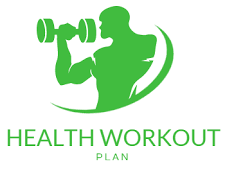Fertility issues are the main reason why couples struggle to get pregnant. A third of all fertility problems are attributed to women, which makes it even more important for ladies to understand their ovulation cycle and the measures they can take to increase the likelihood of conceiving. Statistically speaking, women between the ages of 20 and 29 have a 20% chance of getting pregnant in any given month. However, that number dips after age 35, with a woman being able to get pregnant once every 10 weeks on average by the time she’s 40 years old. That doesn’t mean older women can’t get pregnant; it simply means that older women who want to start or add to their families need to work harder at getting pregnant sooner rather than later.
If you want to know how you can get pregnant with ease, read on for everything you need to know about fertility, conception, and natural remedies designed specifically for increasing your chances of getting pregnant.
What is fertility, and why is it important?
Fertility is the ability of a woman to get pregnant and sustain a healthy pregnancy. Many couples may not realize that an important part of fertility is the ability to produce a healthy supply of eggs. The ovaries produce eggs that are distributed by the fallopian tubes. A woman is born with all the eggs she will ever have in her lifetime. Her egg supply starts to decline around age 35, when women may begin to experience issues with fertility. The longer you wait to get pregnant, the more difficult it may be for you to get pregnant naturally. Fertility issues are a major cause of failed pregnancies.
When the difficulty of getting pregnant comes, solutions like IVF or ICSI could help you reach your goal. Another reason that causes pregnancy failure is stress. Many women in Asia tend to be more stressed due to their working culture. Thailand is one of the most popular for the fertilities service. You can find many IVF center in Bangkok.
Detecting ovulation and conception issues
How to detect ovulation? Ovulation occurs when an egg is released from one of your ovaries. The egg travels through your fallopian tube to your uterus and attaches itself to the wall. This is when you are at your most fertile, which is why timing sex is one of the best ways to get pregnant. The most reliable way to detect ovulation is by observing changes in your body temperature. Your body temperature will rise by 0.5 degrees when you ovulate, so you can use a basal body temperature thermometer to monitor the changes. You can also use an ovulation kit or fertility monitors that are designed specifically to detect ovulation by tracking the changes in your body temperature. – Detecting conception issues – If you’ve been trying to get pregnant for a while with no success, you should visit a doctor to rule out conception issues.
Your doctor will ask about your medical history and lifestyle, as well as perform a physical exam. If your doctor detects a problem, she will refer you to a fertility specialist, who will help you determine the best course of action. Many factors can affect a person’s ability to conceive. For example, your age is a huge factor. Women under the age of 35 have a 20% chance of getting pregnant each month, while the rate drops to 5% for women over 40. Other factors that can affect your ability to conceive include smoking, having an STI, and having a history of pelvic surgery.
Natural ways to get pregnant
Regular exercise can help reduce stress, improve your mood, and boost your metabolism, all of which are important if you want to get pregnant. Exercise also helps regulate your hormone levels, which plays a significant role in ovulation and conception. – Diet – What you eat plays a major role in regulating your hormone levels. A healthy diet high in fibre, vitamins, protein, and antioxidants can help boost your fertility by regulating your hormone levels. Additionally, a diet high in fibre can help you regulate your menstrual cycle and reduce PMS symptoms. – Foods to avoid – Avoiding certain foods can also help you get pregnant.
For example, you should avoid highly processed foods, as well as soda, since they can disrupt your hormones. – Supplements – Certain supplements can help boost your fertility, such as vitamins B6, B9, and B12, folic acid, iron, vitamin C, and zinc. – Stress – Stress can have a negative impact on your fertility. According to a recent study, women who experience high levels of stress are more likely to experience ovulation disorders, particularly infertility.
Conclusion
Getting pregnant doesn’t happen overnight, but it can be a lot easier if you know what to do on a daily basis to increase your chances of conception. Start by keeping a journal to track your ovulation cycle and other aspects of your health that can affect your fertility. Next, make dietary changes, get plenty of exercise, and reduce the amount of stress in your life. While you can’t force your body to get pregnant, you can take natural measures to increase your chances of getting pregnant.

